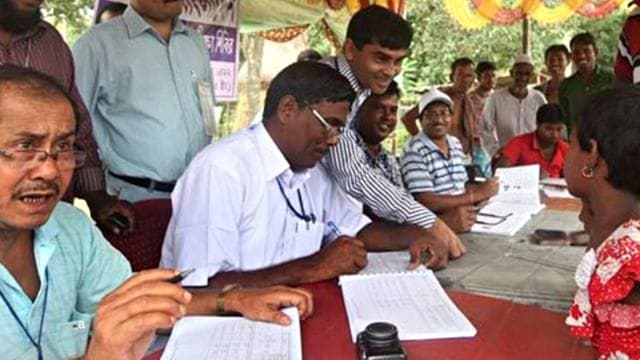
Written by Vignesh Karthik KR and Vivek Gananathan,
The impending delimitation exercise in India goes far beyond mere redistricting; it signifies a fundamental restructuring of political representation to reflect current demographic realities. Consequently, the current discourse on delimitation — specifically, reallocating parliamentary seats based on population — raises questions about India’s democratic ethos, federal integrity, pluralism, gender justice, political diversity, and inter-state economic balance. Numbers inherently shape democracy—they determine electoral outcomes, influence policy formulation, and measure governance effectiveness. In India, parliamentary representation, driven primarily by population numbers, significantly impacts political power distribution. Although constitutionally designed to ensure equitable representation, demographic imbalances and increasing politicisation have intensified tensions surrounding delimitation.
India consciously adopted a quasi-federal system designed to balance regional autonomy with central authority. Delimitation driven by population-based calculations alone, ignoring regional equity, could disrupt this delicate federal equilibrium. Our federal framework historically accommodated diverse regional aspirations through measures like linguistic reorganisation, highlighting centralisation’s constructive potential when equitably managed.
However, increasing centralisation and majoritarian tendencies signal a shift towards asymmetric federalism. Amidst the ongoing debate and resistance from the southern states, the conspicuous silence of North Indian regional parties further complicates the issue.
This silence reveals a critical oversight of the nationwide implications, giving rise to two significant concerns. First, smaller constituencies advantage the Bharatiya Janata Party (BJP), which has effectively mobilised numerically fewer and non-dominant OBC and Dalit communities — examples include electoral shifts in Maharashtra and Uttar Pradesh. Traditional regional parties such as the Samajwadi Party (SP), the Rashtriya Janata Dal (RJD), and the Jharkhand Mukti Morcha (JMM), relying on caste-based and identity-driven coalitions, face potential erosion of their electoral bases, gradually altering regional political dynamics. The broader concern is the diminished relevance of regional parties amidst the growing electoral dominance of one party across the states. Secondly, framing delimitation merely as a North-South issue overlooks its pan-Indian implications. As Gopalkrishna Gandhi notes, India’s true strength lies in being a whole composed of numerous minorities, each empowered equitably. A majoritarian approach to delimitation risks fracturing India’s pluralism, exacerbating regional divisions, and weakening national integration.
Delimitation based solely on population metrics can also be read as anti-women legislation. The debate escalated when CMs like MK Stalin and N Chandrababu Naidu controversially proposed measures to boost birth rates. Stalin’s comments drew widespread criticism from BJP spokespersons, although reversing decades of population stabilisation through rhetoric alone is virtually impossible.
Implementing delimitation strictly on population figures seems to be a doublespeak. It purports to ensure fair representation while actually rewarding demographic expansion and penalising progressive family planning. This approach masks an apparent commitment to equity, undermining the hard-won socio-economic empowerment achieved through deliberate choices toward smaller families.
Southern states, having succeeded through robust family planning policies, empowered women with enhanced access to education, healthcare, and economic opportunities, as evidenced by high female workforce participation in skilled, well-paid roles. Conversely, northern states with higher fertility rates might gain increased political clout, inadvertently reinforcing patriarchal norms and conservative values. This approach risks undermining hard-won gains in gender equality by endorsing demographic expansion without addressing underlying socio-economic disparities.
Population-based delimitation, shifting political power from economically robust states, could destabilise India’s inter-state economic cohesion. This shift risks fragmenting commercial activities, labour mobility, trade linkages, and investment flows critical for national economic stability. Notably, excessive political centralisation favouring certain regions could gradually distort economic participation, including investments, trade, and business profitability.
Former Telangana CM Chandrasekhar Rao recently noted that better-performing states should not face political penalties for their economic achievements and effective population management.
Delimitation represents a reordering of India’s political, social, and economic landscapes, necessitating an inclusive, informed national dialogue. First, the Union government should postpone implementing seat reapportionment until after the 2034 elections, facilitating comprehensive debates and consensus-building. Second, the non-South Indian regional parties and national parties must recognise delimitation as a national issue, advocating collectively for equitable representation to protect the federal balance and political diversity. Third, prioritising women’s empowerment and socio-economic progress can refocus discussions from divisive politics toward progressive policies, incentivising states that advance gender equity, development, responsible demographic management and implementation of a just quota framework for women’s representation.
Ultimately, delimitation should reinforce India’s democratic integrity, pluralism, and balanced federalism. This debate represents a defining moment, offering an opportunity to reaffirm India’s foundational ideals.
Vignesh Karthik KR is a postdoctoral research fellow of Indian and Indonesian Politics at the Royal Netherlands Institute of Southeast Asian and Caribbean Studies – Leiden, and a research affiliate at King’s India Institute, King’s College London. Vivek Gananathan, is an independent researcher based in Chennai